Media coverage
Share

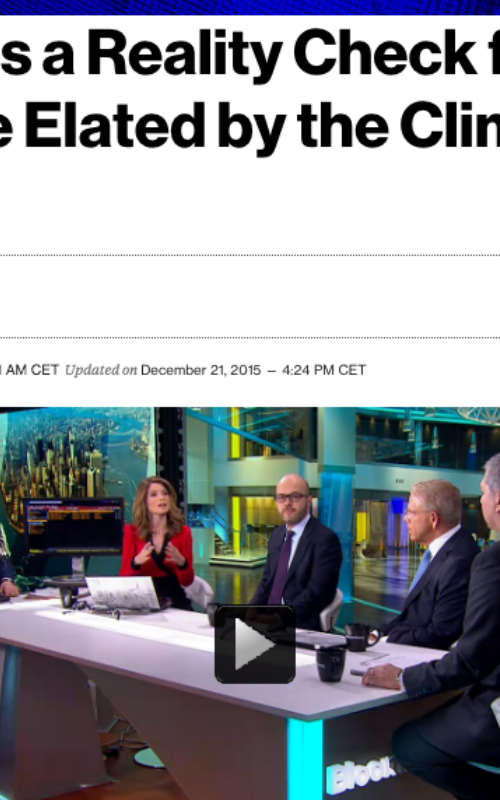
Bloomberg
World leaders may have vowed to wean the world from fossil fuels, but prices for oil, coal and natural gas are at their lowest in years. So is that bad news for people hoping to switch the world to cleaner fuels? “Many analysts would take the classical view that a long period of low oil prices would prompt higher demand,” said Bill Hare, chief executive officer at Climate Analytics, a Berlin-based research group. “It depends very much on what governments do to counteract that.”
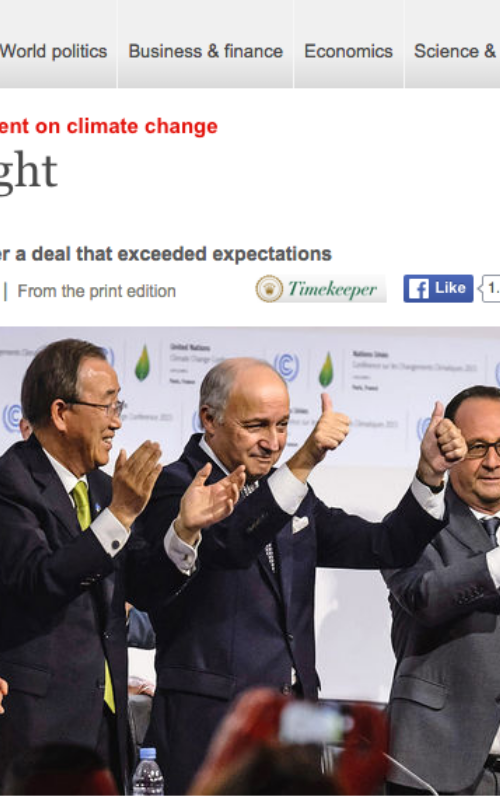
The Economist
The actions outlined in the Paris pledges would be expected to lead to global warming of around 3°C. Given that there has already been about 1°C of warming, the measures required to stay below 1.5°C would be beyond heroic. Work by Joeri Rogelj and colleagues suggests that it would mean net emissions having to fall to zero in at most 40 years.
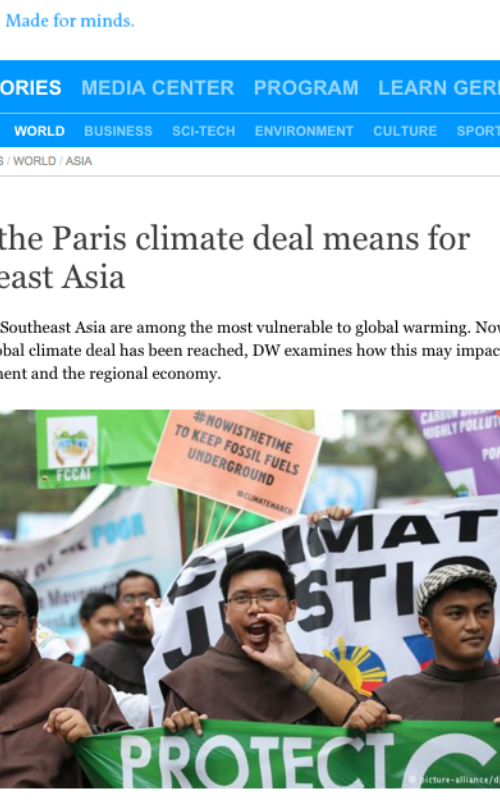
Deutsche Welle
Countries in Southeast Asia are among the most vulnerable to global warming. Now that a landmark global climate deal has been reached, DW examines how this may impact both the environment and the regional economy. The main threat facing the region is sea-level rise and the increased intensity of tropical cyclones. The combination of these two could have detrimental economic and development costs, said Bill Hare, Director of Germany-based Climate Analytics, a non-profit climate science institute.
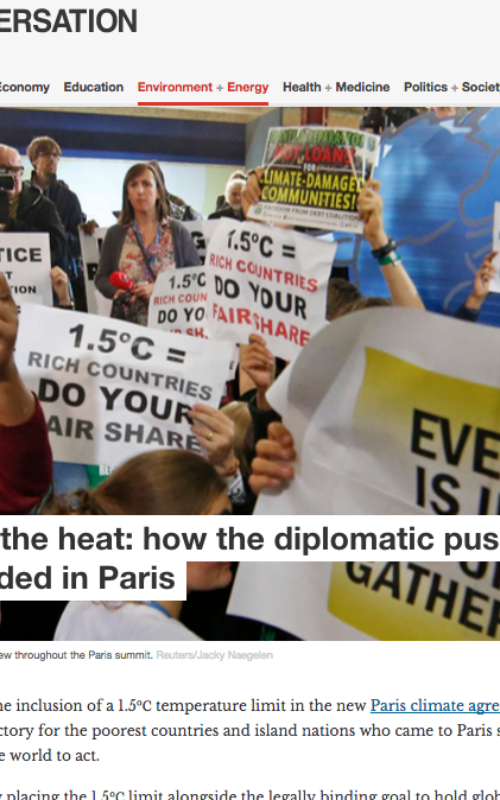
The Conversation
The inclusion of a 1.5℃ temperature limit in the new Paris climate agreement was a major victory for the poorest countries and island nations who came to Paris saying they wanted the world to act. Bill Hare tells the story of how we got 1.5˚C into the Paris agreement, and how "best available science" can take us there.
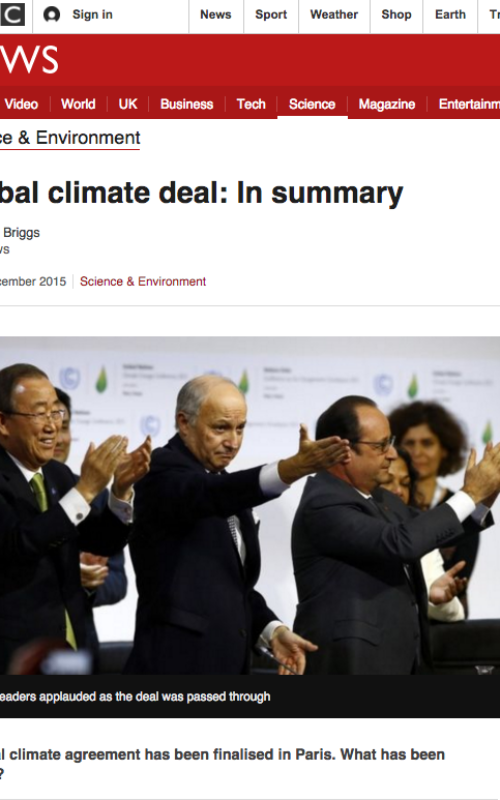
BBC News
The desire for a more ambitious goal has been kept in the agreement - with the promise to "endeavour to limit" global temperatures even more, to 1.5C.
Dr Bill Hare, CEO of Climate Analytics, says the objective is "remarkable".
"It is a victory for the most vulnerable countries, the small islands, the least developed countries and all those with the most to lose, who came to Paris and said they didn't want sympathy, they wanted action."
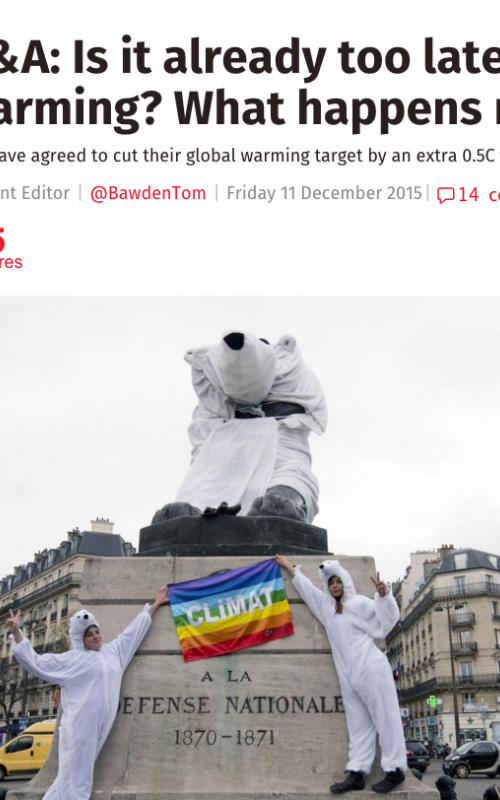
The Independent
World leaders in Paris have agreed to cut their global warming target by an extra 0.5C to 1.5C. Carl-Friedrich Schleussner, a scientist who has worked on research for the IPCC, said this week: “The window for limiting warming to 1.5C is still open, but closing fast”.

Carbon Brief
Scientists discuss the1.5°C temperature limit - featuring Climate Analytics' Dr. Carl-Friedrich Schleußner and Dr. Joeri Rogelj
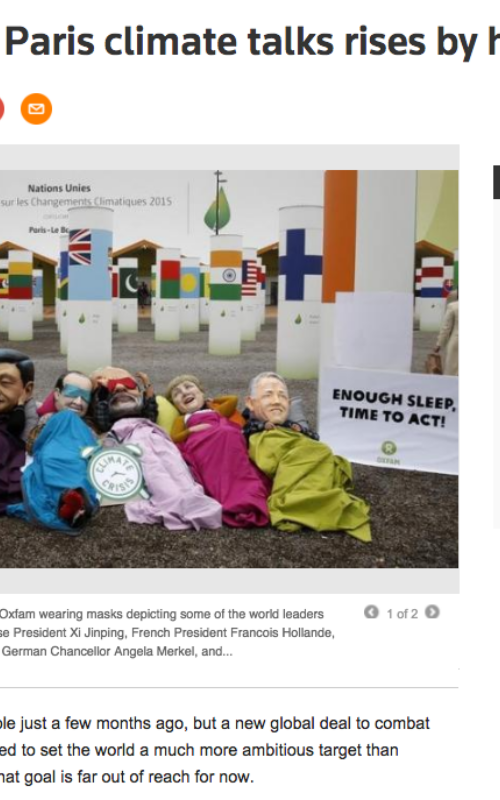
Reuters
Michiel Schaeffer, a researcher with Climate Analytics, said the only difference between achieving 1.5C and 2C was the speed at which carbon-reducing technologies such as energy efficiency and carbon capture and storage had to be deployed: "If you want to get to 1.5 degrees, you need to deploy them five, 10 or 20 years sooner."
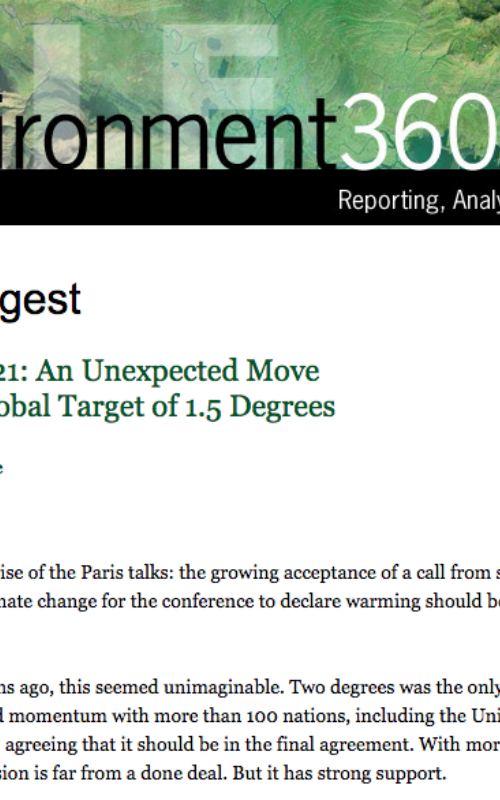
Yale Environment 360
It is the big surprise of the Paris talks: the growing acceptance of a call from small nations most vulnerable to climate change for the conference to declare warming should be halted at 1.5 degrees Celsius. Article includes comments from Climate Analytics Dr Michiel Schaeffer and Bill Hare.
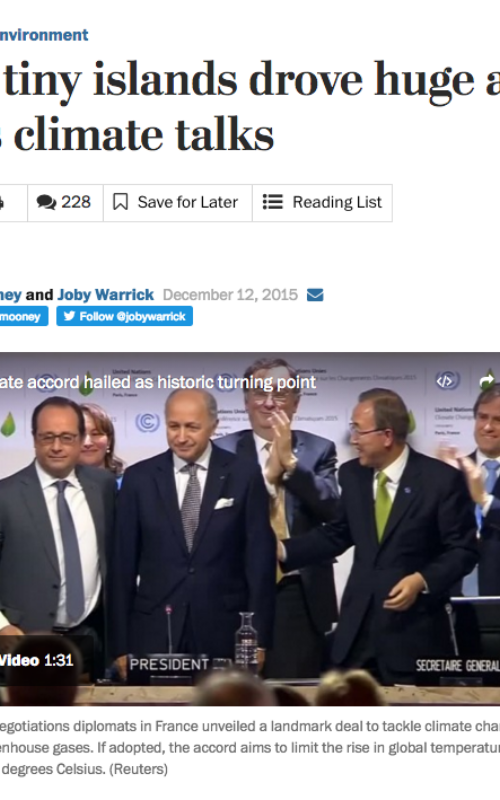
The Washington Post
The growing momentum behind 1.5 degrees is a story of fast-breaking science, savvy politics and a change in tone in the climate debate — one that has focused increasing attention on the needs of the most vulnerable countries. Article quoting Climate Analytics CEO Bill Hare and Science Director Michiel Schaeffer.